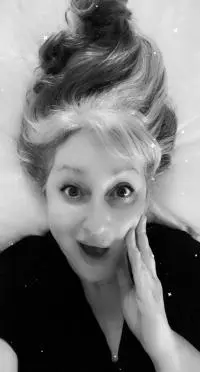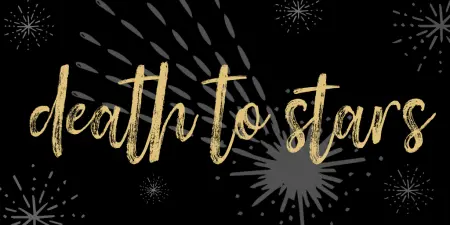I remember the conversation that ultimately led to my decision to eliminate star ratings from my reviews. I had shared a Goodreads review for a book I enjoyed and one of my friends asked, "Since you only rated this book 4 stars, should I add it to my list of books to read?"
I didn't have a problem with this innocuous question. It was the word "only." Because my friend said, "Since you only rated this book 4 stars..." I sat back and thought about star ratings.
I'm going to discuss the 5 star system because this is what is used to rate books on both Goodreads and Amazon. Goodreads suggests this simple formula to interpret the meaning behind the stars:
1 Star: Did not like it
2 Stars: It was okay
3 Stars: Liked it
4 Stars: Really liked it
5 Stars: It was amazing
Goodreads users are forever discussing the lack of nuance in this system, and have resigned themselves to using half stars and even quarter stars in order to reflect their feelings more accurately. However, a 4.25 is still rounded up to a five, or wait—is it rounded down to a four? Depending on the individual, rounding up or rounding down is just as subjective as the meaning behind the stars, and further complicates the issue because the total rating is not a true reflection of those nuanced half and quarter stars.
And yet, what is the actual difference between a 4 and a 5? A 3 and a 4? Take a look again at 2 stars and 3 stars:
It was okay or I liked it.
If you tell someone you thought a book was okay, doesn't that mean you liked it? You liked it enough NOT to say you didn't like it, so it's not a 1 star read. And then you add the word "really" to emphasize a difference between liked it and REALLY liked it? How much is really? Isn't that the same as amazing? 5 stars? No. Really liking something and thinking it's amazing is a whole star apart!
Honestly, it's ridiculous, because:
The star ratings are subjective. Each individual person uses them according to their own definitions, and each person applies their definitions to other user's ratings as well, therefore, the star rating is open to personal interpretation and doesn't adhere to a standard. To emphasize this point, I've seen reviewers say that they never use the 5 or the 1, and they don't "believe in or even read" reviews rated with 1 or 5 stars. This isn't a judgement against reader-reviewers that do this, just a fact that adds clarity to my point.
 The star ratings are reductive and always have been. If a reader-reviewer takes the time to express their individual experience, thoughts, and feelings about a book, a star rating is unnecessary. I would even go as far as saying counter-productive, because oftentimes people will just focus on the stars. Oh, it's a 3 star, okay, and that's all they feel they need to know. But if this same person runs across a review without any stars they are forced to either pass over it, or read it in order to gather the reader's opinion. A much better engagement than just assuming intent based on stars and what they mean.
The star ratings are reductive and always have been. If a reader-reviewer takes the time to express their individual experience, thoughts, and feelings about a book, a star rating is unnecessary. I would even go as far as saying counter-productive, because oftentimes people will just focus on the stars. Oh, it's a 3 star, okay, and that's all they feel they need to know. But if this same person runs across a review without any stars they are forced to either pass over it, or read it in order to gather the reader's opinion. A much better engagement than just assuming intent based on stars and what they mean.
The fear in not using stars is the eventual decline into mediocrity, right? If nothing is rated, if nothing is scored, anything and everything becomes admissible and nothing is given value. Somehow, if we don't apply those stars, rubbish will leak into the mainstream, and suddenly nobody will know what is awful, what is average, and what is amazing. Everything will be arbitrary.
A ridiculous assumption.
Speaking for myself, abandoning the star rating is a return to expressing my reading experience using words, a far superior form of communicating my opinion.
Death to stars is an organic step for me. I have been progressing toward this method since the beginning. My reviewing philosophy, my mission statement, has always been a version of this simple idea: "To put the right book in the right reader's hands." I don't feel like the purpose of my reviews is to hinder a reader from reading a book for themselves. I truly believe that every book has an audience. I show up to every book with the desire to fall in love with it, and I'm always disappointed if that doesn't happen for me, but I know there is a potential that another reader will. So, it's my job to express my reading experience in a way that is honest and authentic, while simultaneously advocating for what I think will appeal to others. By reviewing this way, I see myself as a curator of horror fiction, not a critic. I don't feel comfortable passing a verdict on someone's unique storytelling voice. I know what I like, I know what gives me those long hours of blissed-out reading, and I celebrate what makes my horror-loving heart happy. By doing so, other readers have found they have similar tastes to my own, and my recommendations work for them.
I've been a reader my whole life. Well, since as soon as I was able. I've used reading as an escape from unkindness and overwhelming feelings, as comfort, and as a way to live adventurously, since I am someone who walks through life timidly. Because books are so important to me, authors are also extremely important. The storytellers. I write my reviews in a way that honors books as the gifts they are.
ALL. THE. STARS.
The only time I will assign a score or utilize the star rating system will be when I mark a book on Goodreads with 5 stars, but explain the book exceeds even those 5 stars. And just so there is no confusion, this opinion piece for LitReactor is written in the first person. This is my experience. I am choosing not to use stars, I'm not telling anyone else what to do.
I've often heard it said, "Reviews are for readers," so, if that's true—really, really, really true—read reviews. There's no need for stars.
Death to stars.
And if you want to join me, here's our declaration of independence:


About the author
Sadie Hartmann, “Mother Horror” reviews horror fiction for Cemetery Dance Online and Scream Magazine. She is a co-owner of a curated, horror fiction book subscription company called Night Worms. She lives in the Pacific Northwest with her husband, kids and Frenchie.








